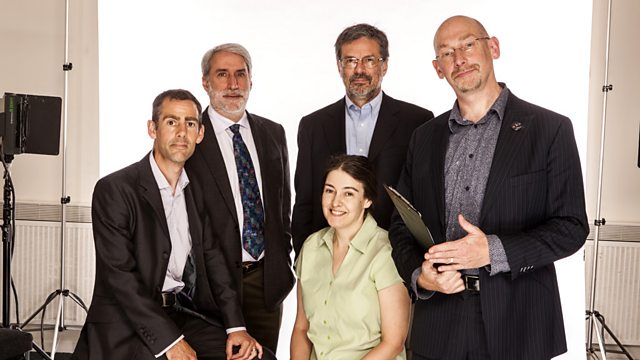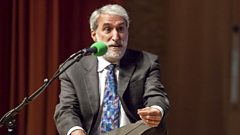The Future of Renewable Energy
Exploring new renewable energy sources such as the artificial leaf, sustainable biofuels and more powerful batteries.
How do we develop a practical, reliable, cheap and globally relevant supply of renewable energy and improve on the meagre 10% of our power needs which renewables currently provide? Quentin Cooper travels to the Royal Society of Chemistry's Challenges in Chemical Renewable Energy meeting in Cambridge, UK, to hear about ideas and latest research results from Brazilian authority on bioenergy Carlos Henrique de Brito Cruz, Cambridge University's creator of better batteries Clare Grey, Harvard pioneer of artificial photosynthesis Daniel Nocera and research director of the UK Energy Research Centre Jim Watson.
Last on
Clip
Chapters
-
Part 1 – The ‘artificial leaf’ and biofuels
Duration: 23:00
Part 2 – Better batteries and power for the world’s poor.
Duration: 17:30
Carlos Henrique de Brito Cruz

An electronic engineer and a physicist, Carlos Henrique de Brito Cruz is a professor at the Gleb Wataghin Physics Institute of the State University of Campinas (Unicamp) and the current scientific director of FAPESP (Sao Paulo Research Foundation). FAPESP’s bioenergy program, BIOEN, aims to integrate comprehensive research on sugarcane and other plants that can be used as biofuel sources, focusing not just on biofuel technologies but also on the sugarcane plant itself, including genomics, plant breeding and farming technologies as well as social, economic and environmental impact studies.
Clare Grey

Daniel Nocera

Jim Watson

Professor of Energy Policy University of Sussex, and Research Director of UK Energy Research Centre, Jim Watson has 20 years’ research experience on a range of energy, climate change and innovation policy issues. His most recent research has focused on the uncertainties facing carbon capture and storage technologies, low carbon innovation in China, community energy in the UK, and the governance implications of sustainable infrastructure systems. He frequently advises UK government departments and other organisations.
On Stage: The Forum @ Cambridge

Next week
Broadcasts
- Sat 14 Sep 2013 23:06GMT����ý World Service Online
- Sun 15 Sep 2013 10:06GMT����ý World Service Online
- Mon 16 Sep 2013 02:06GMT����ý World Service Online
What is the role of libraries in the digital age?
Podcast
-
![]()
The Forum
The programme that explains the present by exploring the past




